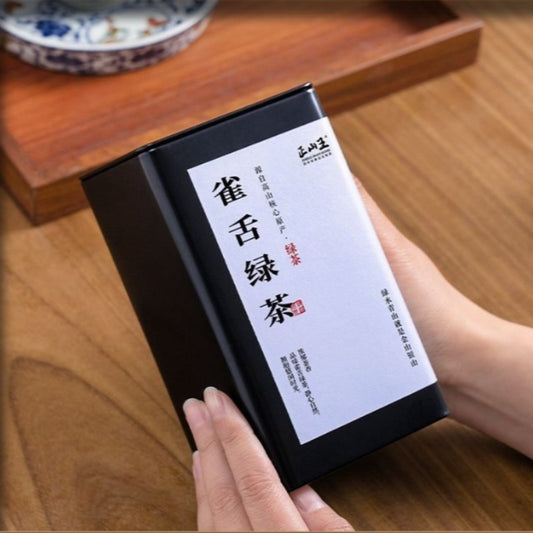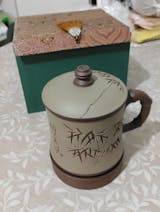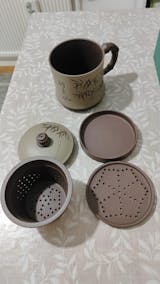Que She (Sparrow Tongue) Tea: The Art of Savoring Tender Buds
— Tasting Guide & Flavor Profile
1. Introduction to Que She (Sparrow Tongue) Tea
Que She (Sparrow Tongue) is a rare and premium green tea from China, named for its slender, pointed leaves resembling a sparrow’s tongue. Made from single buds or one bud with a young leaf, it undergoes precise pan-firing to preserve its delicate freshness, earning its reputation as the "epitome of refined green tea."
Key Origins:
· Guizhou Sparrow Tongue (Zunyi, Meitan—protected geographical indication)
· Sichuan Sparrow Tongue (Mengding Mountain, Yibin, also called "Mengding Que She")
· Jiangsu Sparrow Tongue (Taihu region, similar to Biluochun-style buds)
Characteristics:
· Elegant Shape: Flat, straight, and uniform with subtle white down.
· Delicate Aroma: Fresh, grassy notes with hints of chestnut or orchid.
· Pure Taste: Sweet, mellow, and brisk, with no astringency.
2. Tasting Guide: 5 Steps to Appreciate Sparrow Tongue
-
Observe the Leaves
· High quality: Plump, even buds; vibrant jade-green color with visible down.
· Low quality: Broken leaves, dull yellow hue, or artificial bright green (possible dyeing).
-
Inhale the Fragrance
· Dry leaves: Clean, vegetal sweetness like fresh-cut grass.
· After brewing: Warm nutty or floral notes with lingering cool-mint finish.
-
Admire the Liquor
· Color: Pale gold-green, crystal-clear (like spring water).
· Warning: Reddish or cloudy liquid indicates poor processing/storage.
-
Savor the Flavor
· First infusion (85°C, 10 sec): Light sweetness, reminiscent of edamame.
· Second infusion (90°C, 15 sec): Fuller body, honey-like aftertaste.
· Beyond 3 infusions: Subtler but still aromatic; ideal for 3-4 brews.
-
Examine the Spent Leaves
· Perfect leaves: Tender, intact, and uniformly spread; no red stems or dark spots.
3. Brewing Tips: Unlocking the Tea’s Vitality
· Water: 80–85°C (boiled water cooled 2 mins)—avoid scorching delicate buds.
· Teaware: Glass cup (to watch leaves dance) or porcelain gaiwan (for aroma).
· Dosage: 3g tea per 150ml water (1:50 ratio).
· Pouring: Gently along the vessel’s side to protect the buds.
4. Flavor Pairings & Serving Ideas
· Nature’s Palette: Umami akin to bamboo shoots, aroma like sweet peas.
· Pairings: Light pastries (matcha mochi), mildly sweet fruits (lychee, pear).
· Avoid: Strongly spiced or oily foods that overwhelm its subtlety.
5. Storage Advice
· Preservation: Airtight, dark, and dry; refrigerate (sealed to block odors).
· Peak Freshness: Best within 1 year; aging diminishes vibrancy.
Que She (Sparrow Tongue): A Sip of Early Spring.
Each sip carries the essence of misty mountains and morning dew—an invitation to taste the poetry of China’s tea fields.

![Early Spring Premium [Que She] Fried Green Buds Green Tea 260/520g - YIQIN TEA HOUSE | yiqinteahouse.com | green tea, que she, tea](http://yiqinteahouse.com/cdn/shop/files/1_7e1d0013e47fb8bca5c5332c778b0907.jpg?v=1735742905&width=533)



